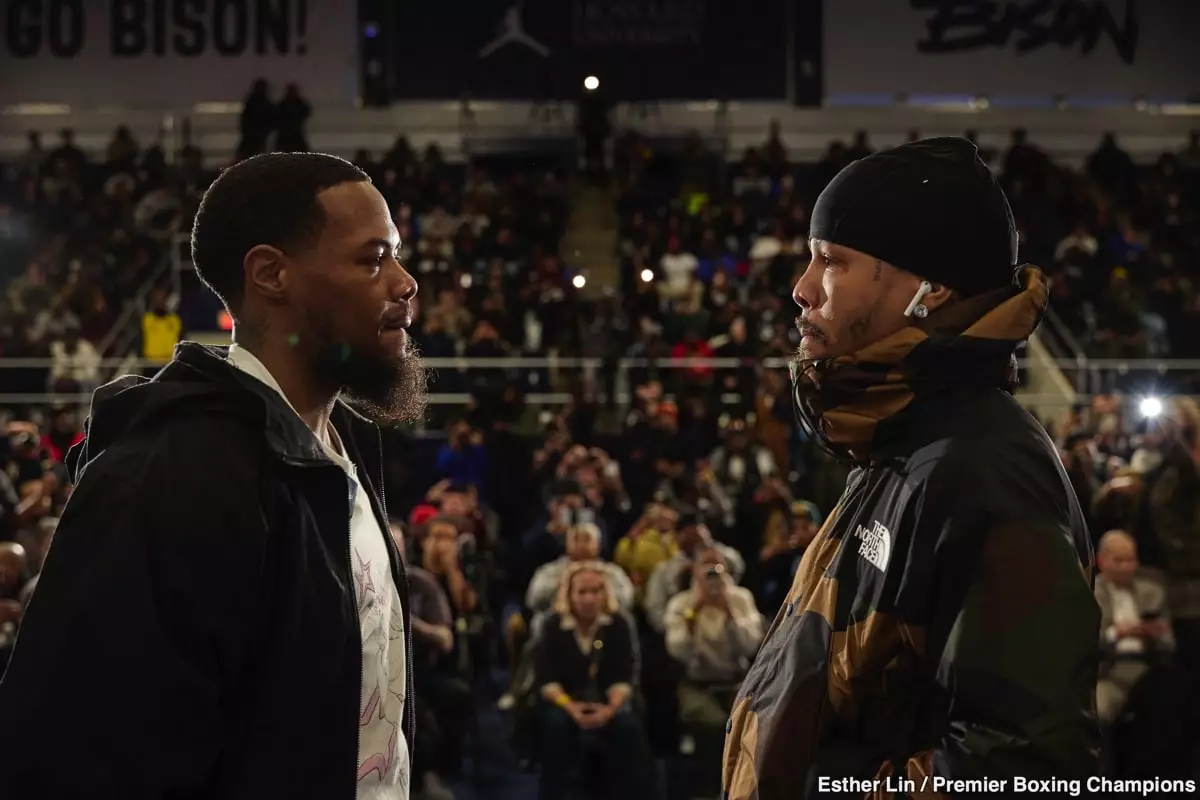In a surprising turn of events, WBA lightweight champion Gervonta “Tank” Davis announced via Instagram that his anticipated fight against Lamont Roach, scheduled for March 1st, has been canceled. Although fans generally celebrated the news, with many expressing relief over the cancellation of what was widely perceived as a lackluster matchup, the implications run much deeper. Davis’s brief and somewhat cryptic message—“The fight is f*** cancel”—hints at frustration, possibly indicating that he had hoped for more from this bout than what it garnered in public interest.
The widespread derision surrounding this fight underscores a growing trend among boxing fans: a diminishing tolerance for matchups that lack competitive stakes or star power. From the onset, the fight was met with skepticism, marking a notable decline from the excitement typically surrounding a Davis bout. Fans are left to ponder whether Davis is genuinely upset about the fight’s cancellation or if he is using this moment as a calculated publicity stunt to stir interest in a rematch or alternate fight.
Market Value and Promotional Strategies
Davis’s fighter career, characterized by a record of 30 wins and no losses, is impressive on paper. However, the choice of opponents has often raised eyebrows, with critics questioning his willingness to engage with higher-caliber rivals. The strategy of cherry-picking opponents like Roach—who lacks significant draw even in his own hometown—reflects a broader trend in sports, where the focus shifts from competitive integrity to maximizing financial returns. This brings to mind the classic sales strategy of creating urgency, akin to “going out of business” sales that entice customers through artificial scarcity.
Davis’s announcement comes at a crucial juncture in his career. With Takn hinting at retiring in 2025 after just three more fights, there’s a fine balance between generating buzz and preserving marketability. Clever promotional tactics may temporarily distract fans from the quality of opponents, but the long-term implications for his legacy and market value are undoubtedly jeopardized.
The Ripple Effect on Boxing Fans
The pulling of the March 1st fight not only raises questions about Davis’s motivations but also reflects wider issues within boxing. Fans grow weary of lackluster bouts that prioritize names over skills, and the fallout of such cancellations can be disillusioning. An already diminishing pay-per-view market faces a further hit when fighters opt for less challenging, less entertaining matchups.
Despite this predicament, both Davis and Roach remain positioned within their respective camps. As of now, Lamont Roach has yet to comment on the cancellation, and the silence from Premier Boxing Champions adds an air of ambiguity to the situation. Could this cancellation lead to an unexpected reshuffling in matchups, or is it merely another stunt in Davis’s promotional playbook? Fans and pundits alike wait with bated breath, unsure of whether they will see a fight worth discussing or just another chapter in the ongoing saga of boxing promotions.
Davis’s cancellation is more than an unfortunate scheduling issue; it symbolizes the critical discourse surrounding authenticity and competitive integrity in boxing. As fans increasingly demand more from their champions, the consequences of subpar engagements may echo far beyond the ring.

